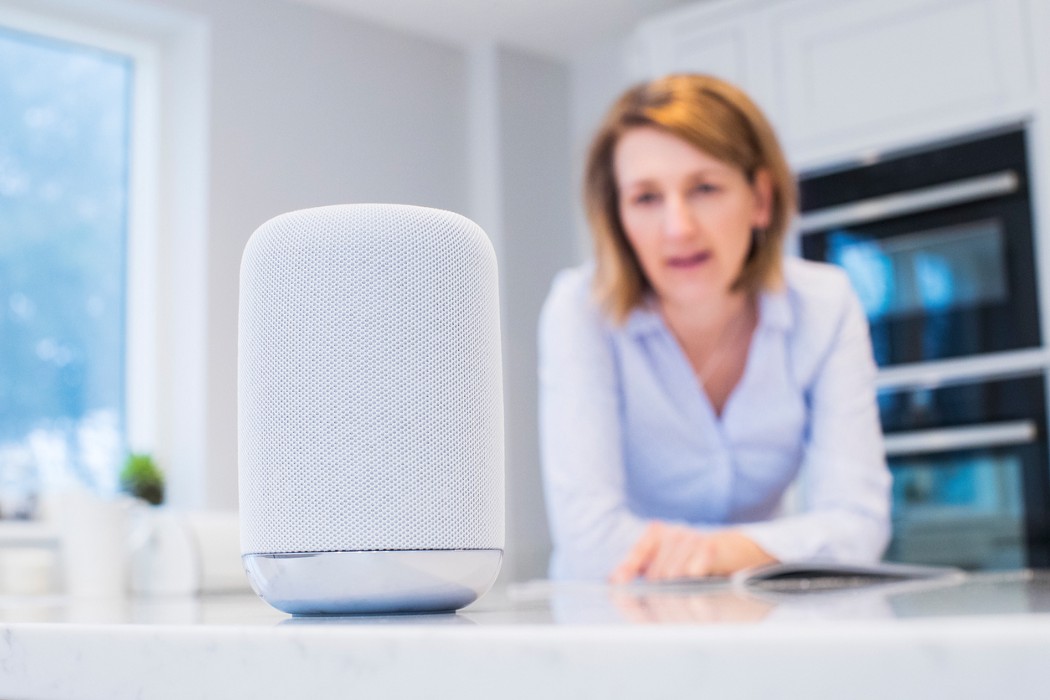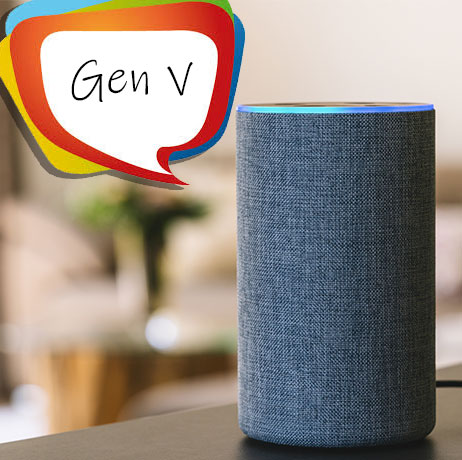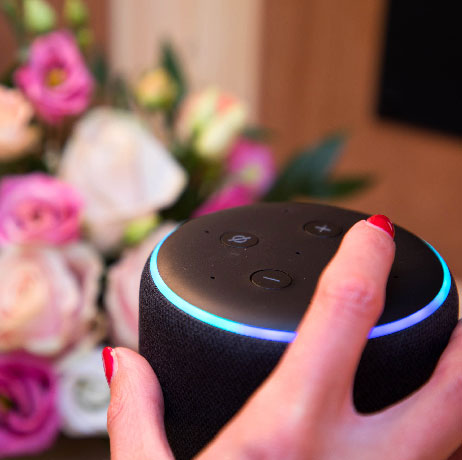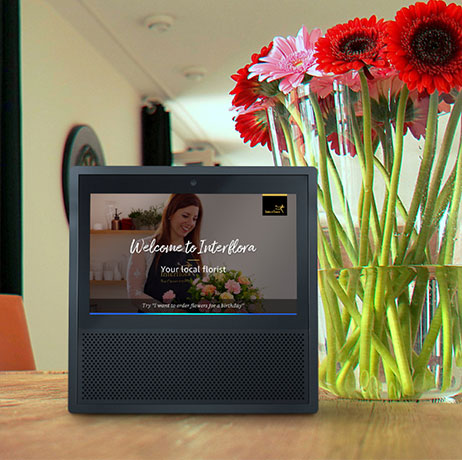
Our belief at Vocala is that voice technology has real potential to add value for organisations and users, to solve problems and ultimately improve people’s lives. The public sector is an area that we feel can see huge benefits from voice. This sector needs to find ways to communicate and engage with the public more than ever. The challenges that 2020 has brought have seen industries turn to technology and given rise to new opportunities for innovation to help.
With this in mind, we recently applied, and were appointed as a G-Cloud supplier. So what’s the G-Cloud? It’s the Digital Marketplace which allows public sector organisations to find approved partners quickly and easily in the digital technology space.
Why Voice?
Some people may ask why voice and what role the technology can play. With over 1 in 5 homes in the UK now owning a smart speaker, and research showing that people are using their voice assistants more and more to consume audio content, to ask questions and to find out information — why wouldn’t voice be a channel to share this information on?
We know that the public sector has both a lot of information to share and that they have a responsibility to engage. Whilst it is true that most (if not all) of the information released to the public is easily accessible online or elsewhere. Voice offers the public sector a new channel to engage.

So, before we share ideas of how voice can be used, let us take a quick look at three main benefits voice offers which can make a difference to those engaging with the public sector.
There are many in society who are unable to use websites unassisted. Voice technology makes it possible for those with visual impairments and disabilities, as well as older people who often struggle with computer and smart phones, to access and engage with vital services.
2. Speed and Convenience
One of the main reasons people enjoy using voice technology is its speed and convenience, we all know you can speak much faster than you can type! The hands-free convenience of voice means busy people can complete ‘life admin’ that might otherwise be put off, while multitasking and without the need to open a laptop or pick up a phone.
When you also consider that voice devices are not only in fixed locations like homes and offices but also integrated into mobile phones, in cars and in wearables like headphones, you can see that the possibilities are endless.
3. Personalisation
The ability for voice technology to deliver highly tailored and personalised experiences offers significant potential within the public sector. Voice devices are AI powered, they respond differently to different individuals, they ‘remember’ past information or interactions and learn about and respond to user behaviour. All of this means a voice device can remind, inspire, educate and encourage people on a personal level. This could be hugely powerful for behaviour change programmes aimed at encouraging things like weight loss, smoking cessation, or more active lifestyles.
So now we know what the benefits of voice are — let us look at some of the easy and cost-effective ways voice and voice assistants could be used to support our public sector and its citizens right now.
- Information
In April 2019, following a six-month trial, the government made more than 12,000 pieces of information available via Alexa and Google Home. People can now ask questions about bank holidays, the minimum wage and how to apply for a passport, for example. And in July 2019 the NHS worked with Amazon to ensure official healthcare advice could be made available via Alexa through access to a free API of NHS website content.
The possibilities for sharing information via voice are endless, we have come up with a few ways this could be of benefit:

- Local news — tailored news, weather and traffic info which could be in the form of a flash briefing
- Events — sharing dates and details of what’s on and how to book
- Reminders — for waste collections, key events or meetings, consultations, and deadlines like school applications. Who doesn’t ask when the recycling bin needs to go out over Christmas?
- Locations and opening times — of libraries, leisure centres, parks and other public spaces
- Alerts — about weather, flood warnings, school or building closures
- Advice — about health, parenting/schooling, employment, security
- FAQs — general frequently asked information at the tip of everyone’s tongues
2. Requests
The next step on from providing information is allowing people to make requests for things they need to be an active citizen. Instead of having to go online (or in some cases go somewhere physically) and input details this can all just be done through voice. You could ask your voice assistant for any of these things and more and have them sent to you by email, SMS or in the post:
- Forms and applications — for jobs, licenses, study, planning, crime reporting
- Information — further details about events, activities, initiatives and campaigns
- Advice — request specific information from experts or professionals
3. Feedback
Ensuring public bodies are actively engaging with communities is a key part of our civil society and voice can support in allowing this to take place effectively. Examples of this include:
- Consultations — providing information, dates and responses as part of an official consultation process
- Surveys — asking people their opinions, preferences and gathering insights
- Reporting — missed refuse collections, fly-tipping, transport issues, public highway problems
4. Appointments
Voice and digital can provide a plethora of information and engagement without having to meet or engage with a real human. But there are also plenty of times that people need to meet face to face or online and in these cases voice can support by quickly and easily providing availability details and booking appointments including:
- Doctors or hospital appointments
- School tours and open days
- Birth and death registrations
Not just transactional
These examples are all transactional, which are great and enable more people in the community to connect and engage, but there is also another area that voice can support with and that is with Care and Connection which has become more important this year.

With an ageing population coupled with a social care crisis, voice could offer solutions to many problems in this area. Studies amongst older people have shown that the use of voice devices can help reduce loneliness and feelings of isolation. Although voice can’t replace connection with family or the role of care workers it can support them and allow them to focus more on core needs.
Last year Hampshire County Council ran a pilot which provided smart speakers to people under adult social care and three quarters of those who took part (across all ages) said the device helped improve their lives. There are plenty of projects and pilots that have demonstrated that smart devices can help with things such as:
- Remote monitoring — the ability to easily make contact with family, friends and carers (especially when some people don’t feel comfortable wearing a personal alarm)
- Reminders — to take medication, collect prescriptions, or do exercise or physio
- Management of chronic conditions — recording symptoms and side effects
We know voice is a growing market that’s here to stay and we know that our public sector organisations both want and need to engage with its citizens in a convenient, easy, efficient and meaningful way. The potential for voice in this sector is huge and we are excited about the impact it could have on people’s lives.
For more information about G-Cloud and the Digital Marketplace or to discuss specifics of a public sector project or campaign please get in touch.
-
Written by:
Rob Stanbridge
-
Posted on:
15-11-2021
-
Tags:
#opinion #marketing #voice-for-good #voice #news









